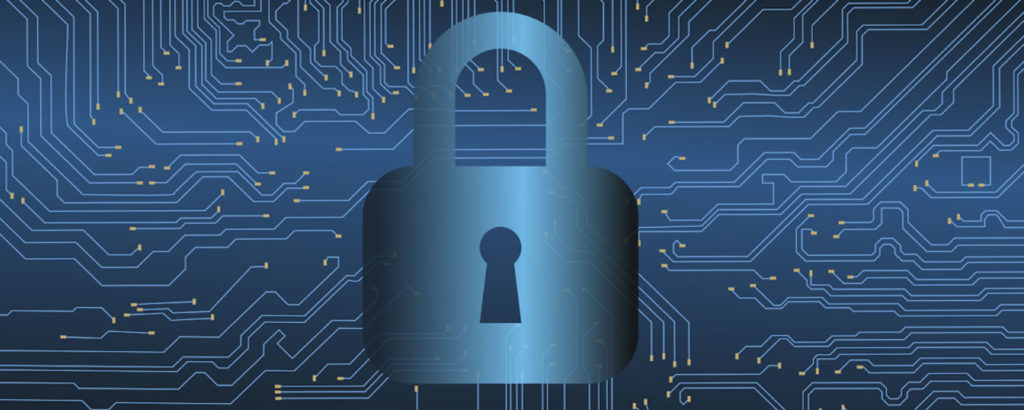Cybersecurity had a massive impact on international affairs throughout 2017. The rising number of global collaborations and the new laws that encompass the growing complexity of technology could present a solution to these problems in 2018.
But first, you need to know which major security issues kept CISOs awake in 2017. So, without further ado, here is a list of important things that might have skipped your radar:
Ultrasonic noises can now be used by apps to track user movement

Ultrasonic sounds are almost silent tones which are undetectable to the human ear. This means you won’t be able to hear them even if they’re being emitted near you.
But do you know who can pick up these sounds? Well, certain apps on your smartphone have been set up in a way to always listen for these sounds. What’s more, these noises may be used by the programs to create a profile on you, especially where you’ve been, what you’ve seen, and even the websites you’ve browsed.
Social media goes antisocial
2017 witnessed a growing connection between cybersecurity and social media. Online platforms like Twitter and Facebook were supposed to democratize societies and politics, ushering in a new level of transparency. But 2017 saw these social media channels being used more as sources of misinformation, propaganda, and “fake news.”
The power of social media was clearly on display when it was used to displace authoritarian governments at the time of the Arab Spring uprisings in 2011. Nobody could have foreseen how effectively authoritarian governments would use social media to widen and exploit the divisions in different democratic nations.
So, 2018 marks the time for a discourse on how social media manipulation can be avoided, the distribution of fake news can be prevented, and how prominent social media sites can be encouraged to police and monitor the activities conducted on their own networks. The most salient aspect is, social media websites should not be allowed to become corrupted or co-opted, thereby hindering international security and peace.
Get matched with relatives you didn’t know existed with a Facebook algorithm
Did you know Facebook, the most popular social media platform, has a secret algorithmic feature that lets users find long-lost relatives in the “People You May Know” section? What’s more, the two do not need to have any sort of connection friends in common. Facebook would not reveal how it was able to match two relatives together.
But who wants more relatives around during Christmas and other annual celebrations? Is there not already enough? Well, if the person is righteous and honest, you can never have enough people like that in your life.
Windows 10 users still face ransomware threats

According to Microsoft, “no known ransomware” will be able to penetrate the defenses of Windows 10S, which is a locked-down version of the OS that allows applications only through Windows’ own app store. Unfortunately, it seems like the company still has a way to go as the claim doesn’t hold up, and ransomware can still run on this protected version.
Apple uses secret servers to hide job postings
Apple has always been known to hire the cream of the crop within the engineering industry. The company took this a step further when it concealed a job listing within a hidden but public-facing iCloud server earlier in 2017. The posting wanted “a talented engineer to develop a critical infrastructure component that is to be a key part of the Apple ecosystem.”
Now, more companies have begun to hide their job postings within the source code of the website and other unusual places to attract the sharpest talent in the industry.
A mere mention in a tweet may be cause for a subpoena
The Department of Justice sent subpoenas to five people, including a renowned lawyer and blogger and a well-known data breach reporter. The reason? They were mentioned in a particular tweet! The prosecutors asked them for a wide range of information, including their IP and postal addresses, names, and other personal information.
Wow, why not ask someone what is their favorite color and what teacher they liked the most in high school? Why not ask someone how come “Thor III” had such a weak storyline and all those gorillas lived at the end of “Planet of the Apes III” and every human died in that avalanche scene? How ridiculous is that?!
Gaps in mass surveillance
In a special rapporteur on privacy, the United Nations criticized new surveillance laws in the U.S. and Europe early last year saying there was almost no evidence that the mass monitoring of communications would be a deterrent enough for terrorism. But many people do not believe the UN is on the right side of things so these statements have to be taken with a grain of salt.
Spy programs by the NSA will not go extinct once the spy laws in the U.S. expire
The NSA was allowed to keep tabs on foreign nationals as well as Americans abroad thanks to a major law, which expired on the midnight of December 31st. However, due to the authorization characteristics of certain surveillance programs, some of the legal power will extend to the month of April.
This means the U.S. Congress still has a couple months left to sign a bill that would reauthorize or reform the existing spy laws in the nation, which have largely remained unchanged since the disclosures of Edward Snowden.
Difficulties in deleting a Yahoo mail account
After news of the large-scale 500 million account breach went public in 2016, Yahoo saw many users trying to delete their email accounts permanently throughout last year. However, the process turned out to be trickier than anticipated, as a lot of users found out that the accounts continued to exist and remained active. In fact, they had no way of wiping out their accounts.
2017 came and went, bringing with it new security paradigms, and exposing lapses in the cybersecurity measures adopted by various companies and global users at large. Thankfully, we can learn from these mistakes and make 2018 a safer and more secure year digitally.



